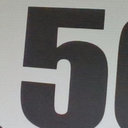3'-Daidzein sulfonate sodium provides neuroprotection by promoting the expression of the α7 nicotinic acetylcholine receptor and suppressing inflammatory responses in a rat model of focal cerebral ischemia.
الكلمات الدالة
نبذة مختصرة
In a previous study using a rat model of focal cerebral ischemia/reperfusion (I/R) injury, we found that 3'-Daidzein sulfonate sodium (DSS), a derivative of daidzein, exerts neuroprotective effects by alleviating brain edema and reducing levels of interleukin (IL)-6. The present study was designed to further examine the potential mechanisms of the neuroprotective properties of DSS in a rat model of cerebral I/R injury. We found that treatment with DSS ameliorated neurological deficit, infarct size, and cerebral water content in rats with cerebral I/R injury. Moreover, treatment with DSS significantly reduced the levels of IL-1β, IL-6, and tumor necrosis factor (TNF)-α in serum and in the ischemic penumbra. Additionally, DSS treatment increased the expression of nicotinic acetylcholine receptor alpha 7 (α7nAChR), and inhibited the expression of glial fibrillary acidic protein, phosphorylated p65 nuclear factor κB, and phosphorylated inhibitor of NF-κBα, suggesting that DSS provides neuroprotection by suppressing inflammatory responses after focal cerebral I/R injury. Notably, α-bungarotoxin, an antagonist of α7nAChR, reversed the neuroprotective effects of DSS after cerebral I/R injury, suggesting that inhibition of α7nAChR expression is sufficient for reversal of the neuroprotective effects of DSS. In conclusion, we found that DSS treatment provides neuroprotection by promoting α7nAChR expression in a rat model of focal cerebral ischemia, thus establishing α7nAChR as a potential therapeutic target in cerebral I/R injury.



